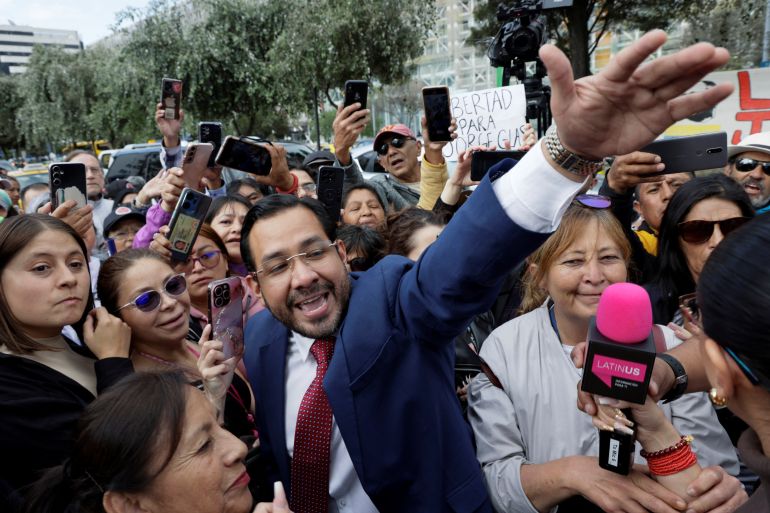“Depicting” LGBT Relationships May Be Punishable with a Prison Sentence
Anastasiia Kruope
Assistant Researcher, Europe and Central Asia

Click to expand Image
Belarusian LGBTQ activists with white-red-white flags participate in the Warsaw Equality Parade, June 25, 2022. © 2022 Sipa USA/AP Photo
Belarus has hit a new low in its targeting of lesbian, gay, bisexual, and transgender (LGBT) people. As of today, the definition of pornography under Belarusian law will include depictions of same-sex relationships as well as transgender people.
The Culture Ministry recently amended its decree on “erotic materials” to classify “homosexualism, lesbian love” and the “desire to live and be seen by others as a person of an opposite sex”—a reference to transgender people—as “non-traditional sexual relationship or behavior.” This places depictions of LGBT people alongside those of necrophilia, pedophilia, and voyeurism, all of which legally constitute “non-traditional relationships.”
Under Belarusian law, they all may also constitute pornography.
Public displays of pornography are punishable in Belarus with up to four years in prison. Child pornography is punishable with up to 13 years behind bars.
While it is not yet clear what kinds of depictions of LGBT people could fall under the new definition of pornography, it clearly aims to assault the dignity of sexual and gender minorities, people already demonized and at risk of persecution in Belarus.
Belarusian public officials and religious groups periodically advocate for introducing administrative and criminal liability for “non-traditional sexual relationship and gender change propaganda.” Neighboring Russia recently expanded its anti-gay propaganda law and banned the “international LGBT movement” as extremist.
In 2020, police arrested numerous peaceful protesters who demonstrated against the rigged presidential elections. Belarusian rights groups documented the systematic and widespread ill-treatment and torture of the protesters, reporting that people perceived as LGBT faced an increased risk of police violence and threats of sexualized violence.
Since then, Belarusian authorities have used public humiliation as a shaming tool against critics who are perceived to be or are LGBT. In one such instance, police forced a detainee, arrested for leaving a critical comment online, to “confess” on camera to being gay. At the end of the horrific video, he said: “I understand this is immoral, I promise to correct it.”
In their brutal assault against civil society in recent years, Belarusian authorities shut down all human rights organizations, including LGBT rights groups, leaving LGBT people with even less protection.
Belarus should annul these despicable amendments and stop cynically targeting LGBT people.
The band's song was the anthem of protests after President Lukashenko's 2020 reelection
Associated Press
Published April 12, 2024
TALLINN, Estonia (AP) — Belarusian authorities on Friday convicted a famous dissident rock band, designating the band and its three members as extremist and sentencing them to two years of correctional labor. It was the latest in a yearslong crackdown on dissent that has engulfed this country of 9.5 million people.
Nizkiz band members — Alyaksandr Ilyin, Siarhei Kulsha and Dzmitry Khalyaukin — were charged with "organizing and plotting actions grossly violating public order."
In 2020, when Belarus was rocked by mass protests that erupted after President Alexander Lukashenko won a sixth term in office in a disputed election, the band released "Rules," a song that became the protests' anthem. A music video for the song was filmed at one of the demonstrations against the country's authoritarian leader.
Lukashenko's government unleashed a brutal crackdown in response to the protests, arresting more than 35,000 people and violently beating thousands. Many have been labeled as "extremists," a designation frequently used against critics. The repressions have continued to this day.
In addition to the sentencing, the band and the musicians were also added to the state registry of extremists, which effectively means a ban on its songs and exposes Nizkiz's fans to prosecution.
The band was founded in 2008 in the city of Mogilev in the east of the country. In January 2024, Ilyin, Kulsha and Khalyaukin were arrested and initially faced petty charges, but then authorities opened a criminal case against them. They have been behind bars since then.
In February, the Viasna human rights center declared them political prisoners. According to the group, which is the oldest and the most prominent in the country, there are currently 1,387 political prisoners in Belarus, including Viasna's founder Ales Bialiatsky, who won the Nobel Peace Prize in 2022.
Belarus' opposition leader Sviatlana Tsikhanouskaya on Friday urged musicians around the world "to express solidarity with their Belarusian colleagues, who were convicted over the songs of freedom."
"The Belarusian regime continues a ruthless attack on our culture," Tsikhanouskaya said in written comments sent to The Associated Press.
"Nizkiz's songs sounded during the 2020 protests," she said. "That's why the members of this popular band were brutally detained in their apartments and then convicted. It is yet another shameful act of the regime's revenge."





 Protesters call for the release of former Vice President Jorge Glas in Quito, Ecuador, on April 12 [Karen Toro/Reuters]
Protesters call for the release of former Vice President Jorge Glas in Quito, Ecuador, on April 12 [Karen Toro/Reuters]




